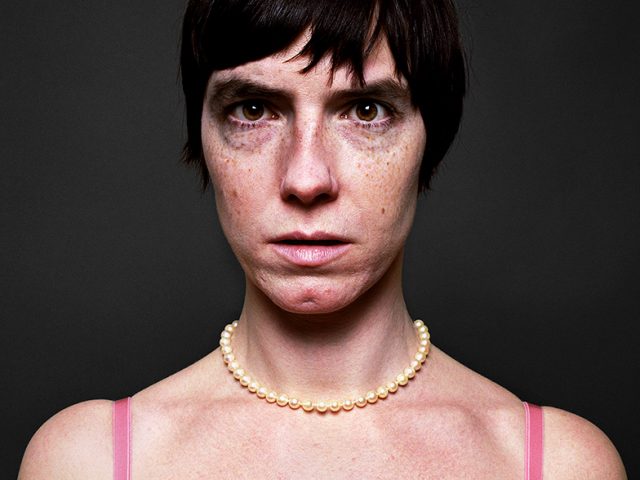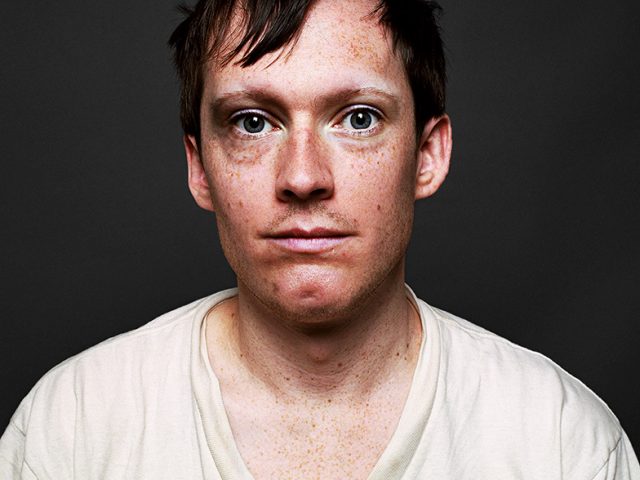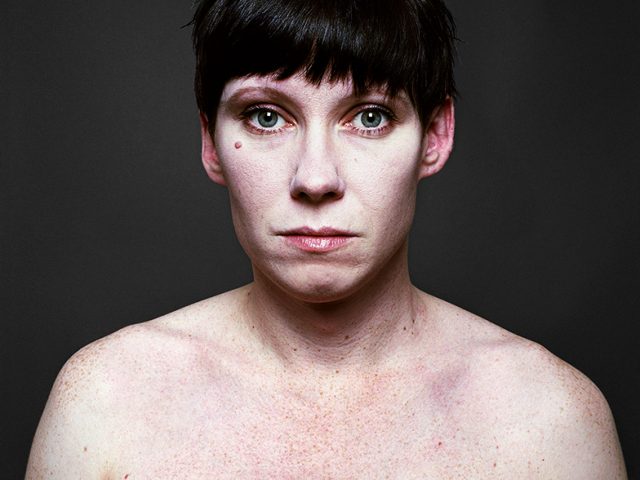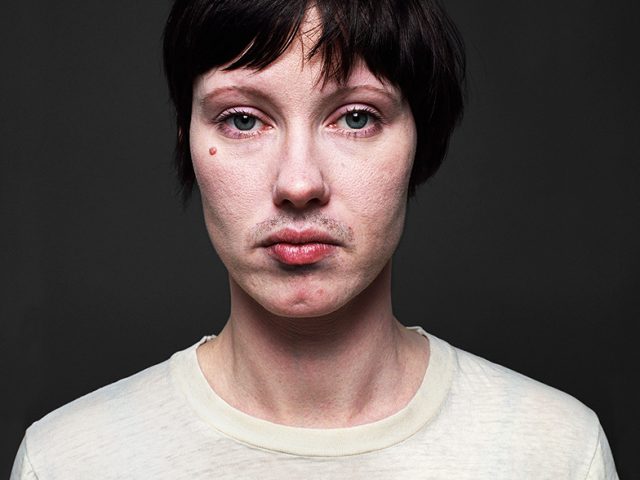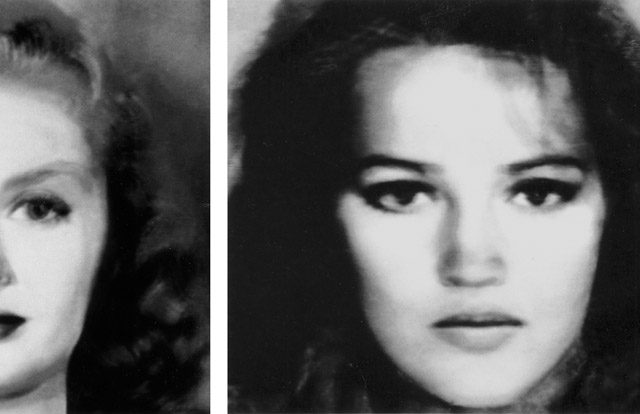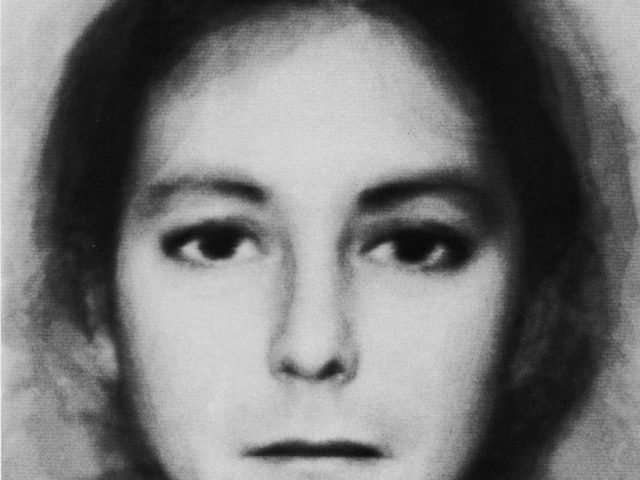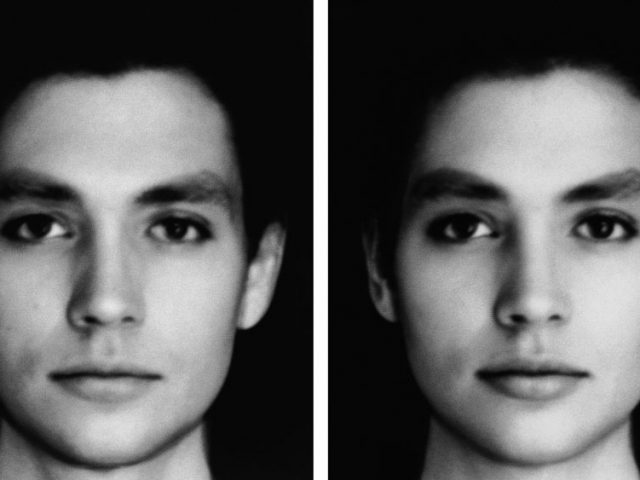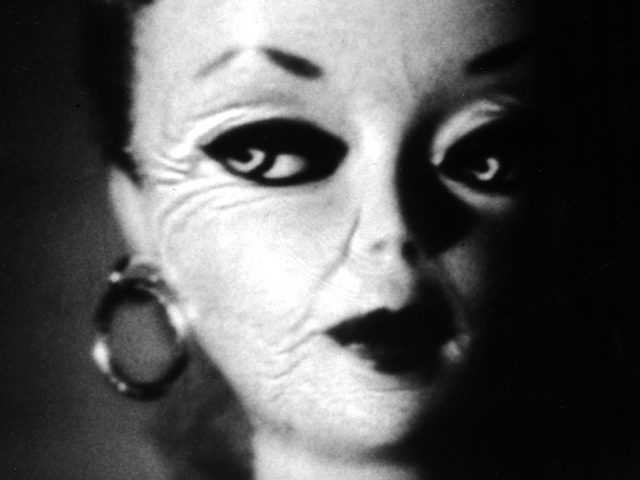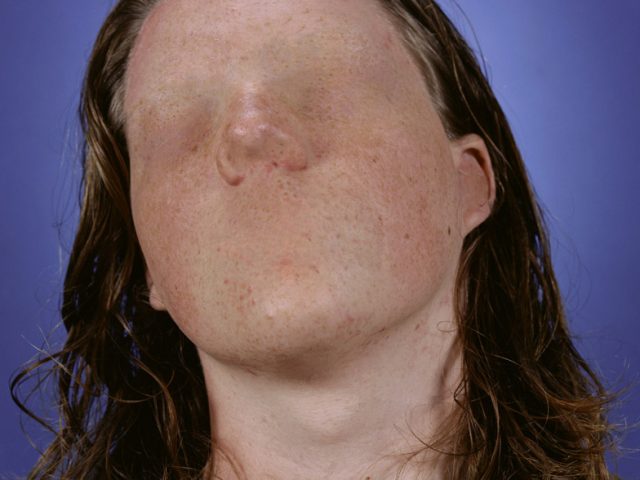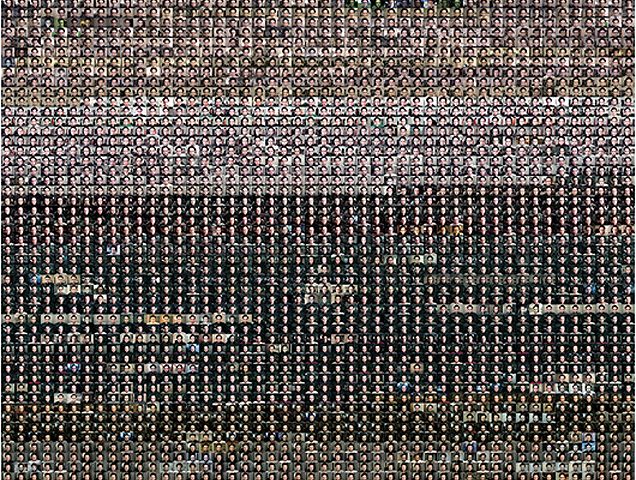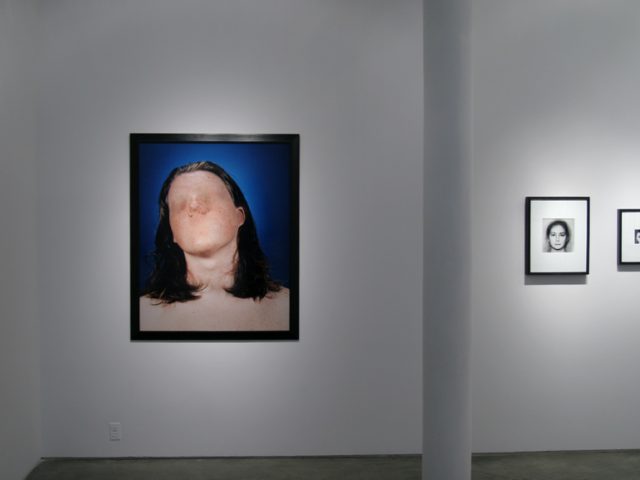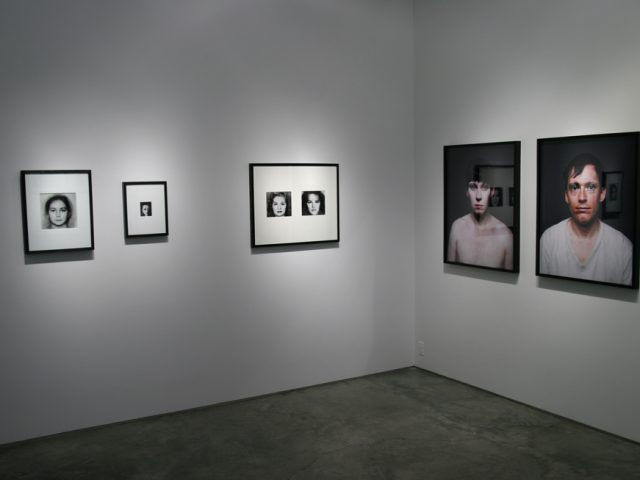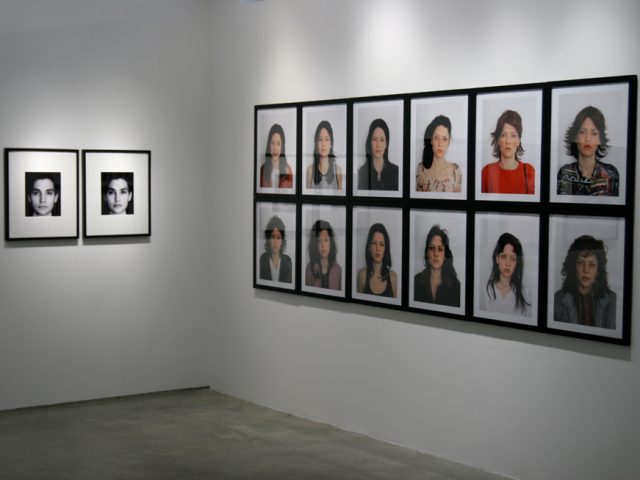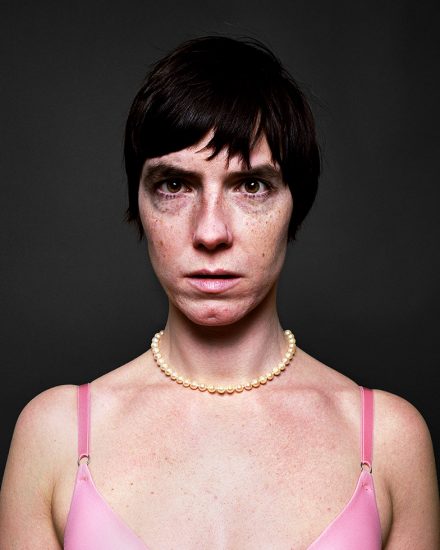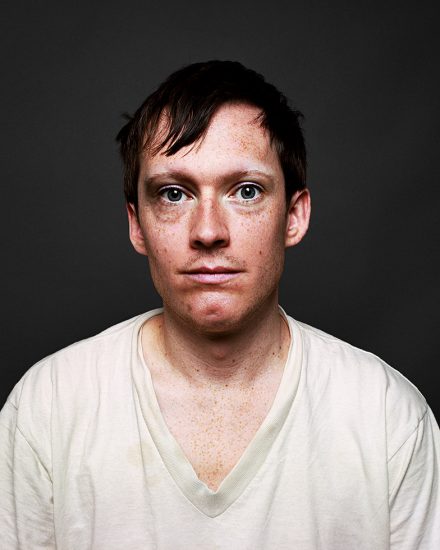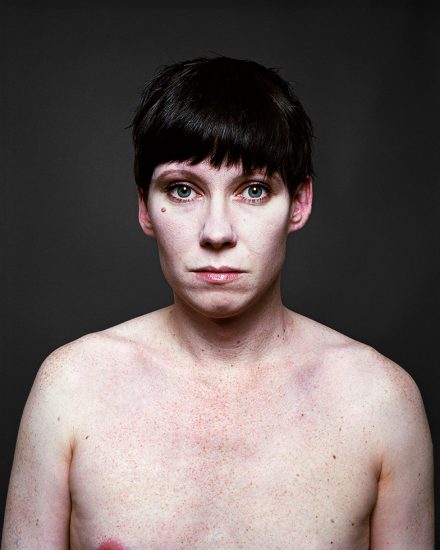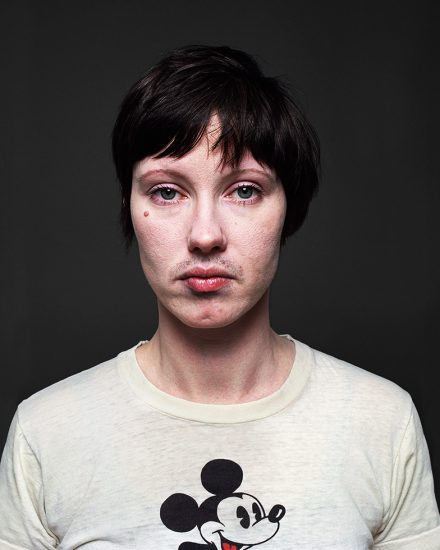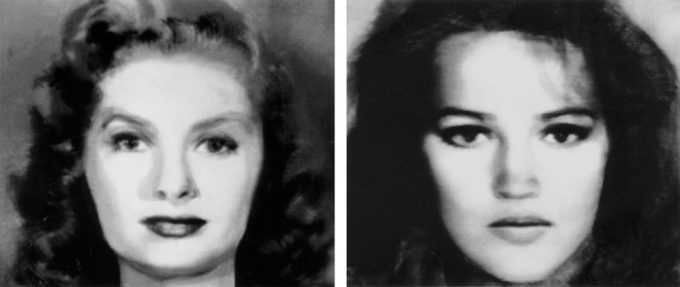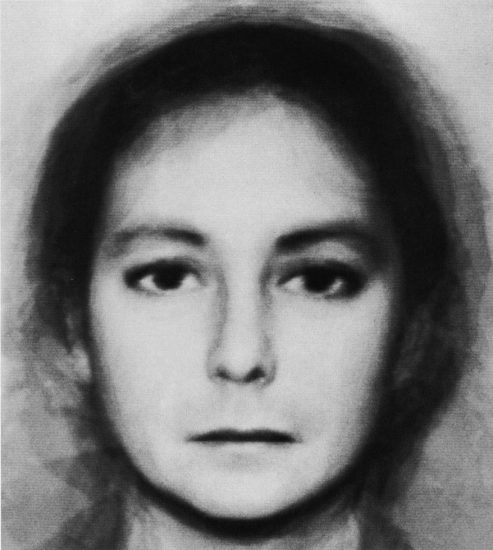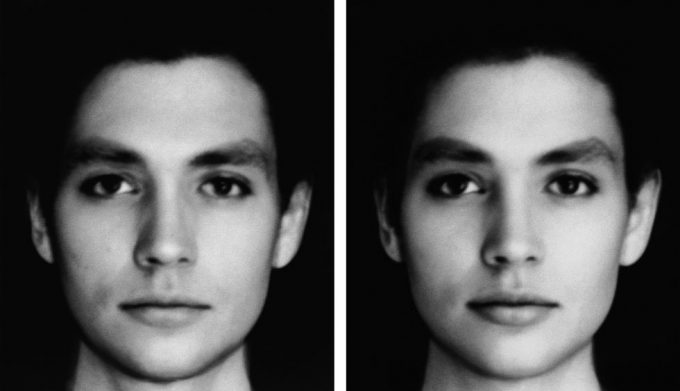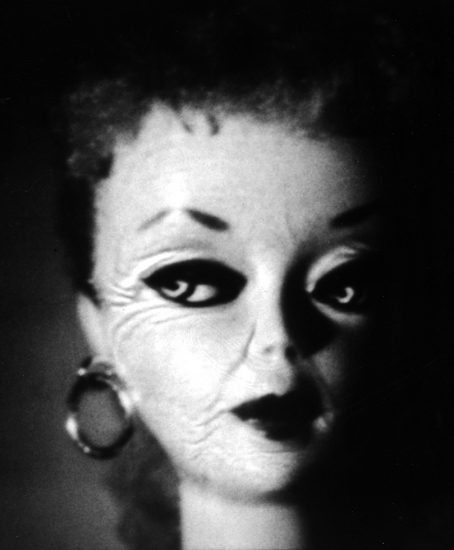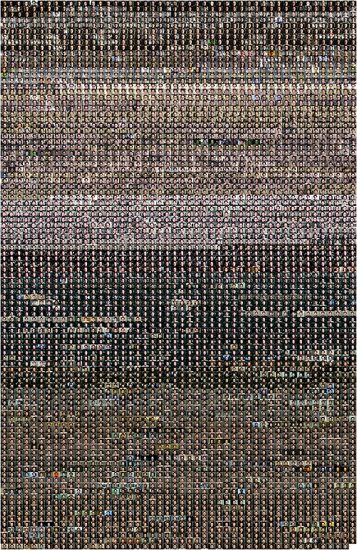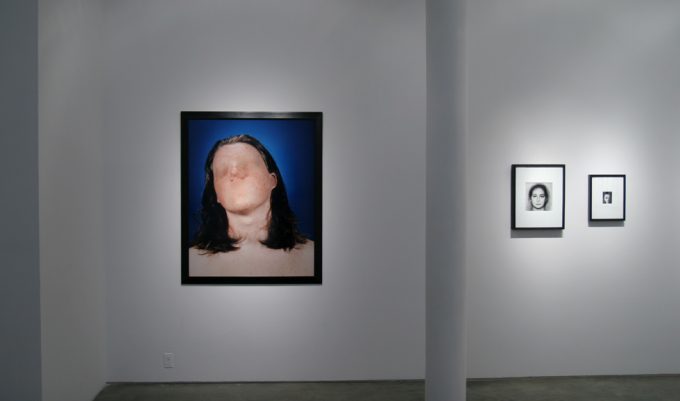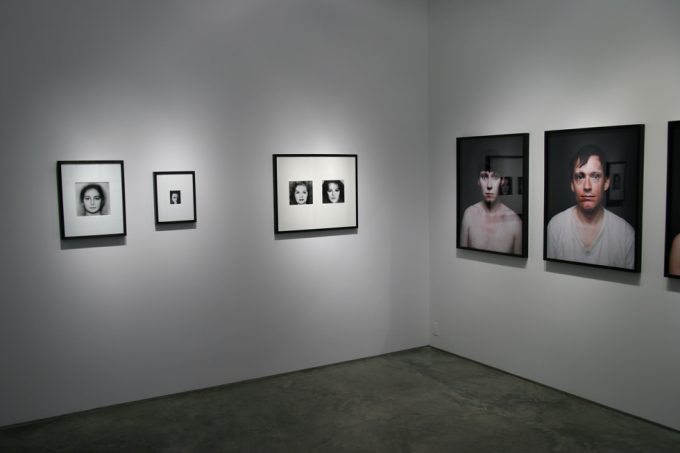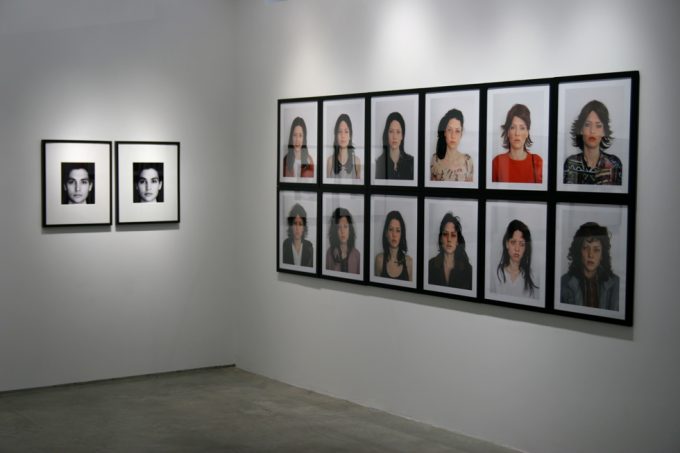Opening Reception:
Thursday, June 28, 2007
6.00 to 8.00 pm
ClampArt is pleased to announce “The Evolution of the Digital Portrait,” an exhibition of photography and video with works by Nancy Burson, Aziz + Cucher, Loretta Lux, Jill Greenberg, Simen Johan, Gregory Scott, Jake Rowland, Marc Yankus, EJ Major, and Noah Kalina.
Best known for pioneering new technology in digital photography since the late 1970s, artist Nancy Burson is the starting point for the exhibition. Over twenty-five years ago, Burson helped develop software with scientists at the Massachusetts Institute of Technology that enabled the construction of composite portraits. Not only did Burson’s digital photographs challenge notions of visual perception and identity; the software ultimately realized a myriad of practical applications. For instance, Burson’s technology allowed for the aging of subjects of photographs. This program was ultimately purchased by the Federal Bureau of Investigation, which then enabled law enforcement officials to locate missing children and adults.
Burson’s early work set the stage for a variety of artistic and non-artistic developments in digital imaging technologies that have since profoundly changed our society in aspects we are only now beginning to recognize. Indeed, in the mid-1990s in their series “Dystopia,” artists Aziz + Cucher commented upon the waxing loss of identity in a technological environment that promotes anonymity and conformity. This bleak reading of the intersection of technology and culture is echoed in works by Loretta Lux, Simen Johan, Gregory Scott, and Jake Rowland, whose employment of digital means are very much part of the message. Jill Greenberg, Marc Yankus, and EJ Major, on the other hand, seem to use digital photography more as an adept but ultimately innocuous sort of tool to address disparate points of import. Noah Kalina, the youngest artist in the exhibition, uses digital photography as a matter of fact, harnessing a technology that is so second nature, so innately engrained, it requires no elaborate address—the artist is free to obsess with self-reflection.


